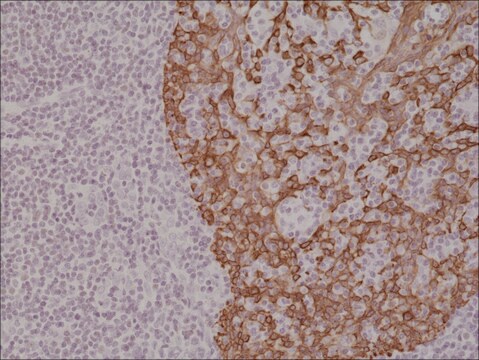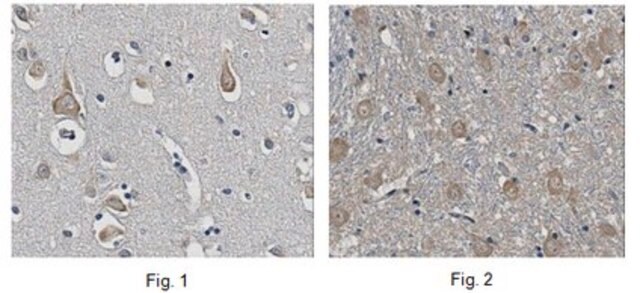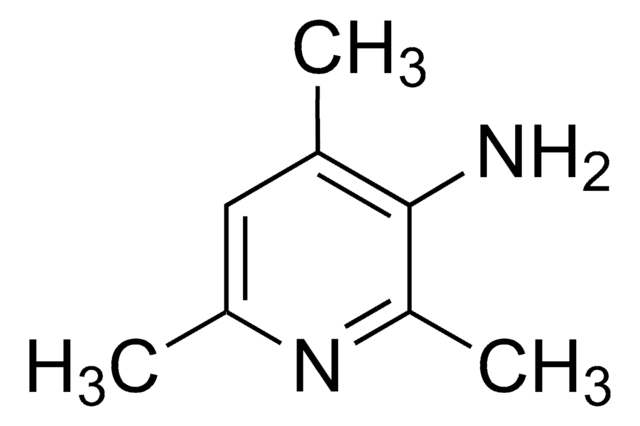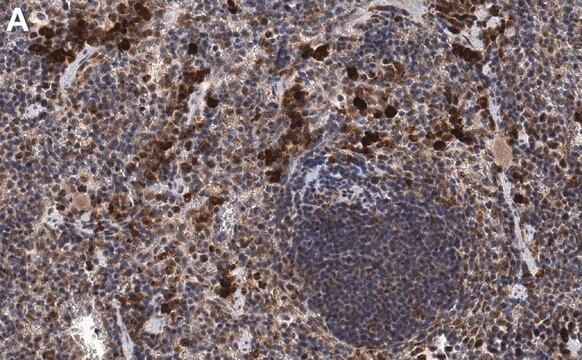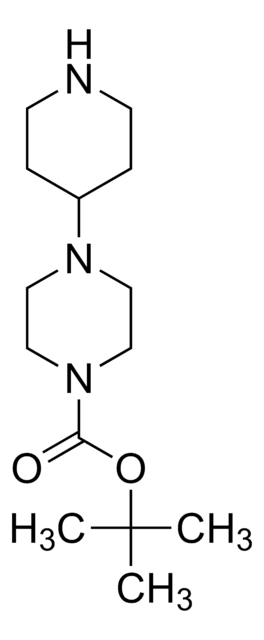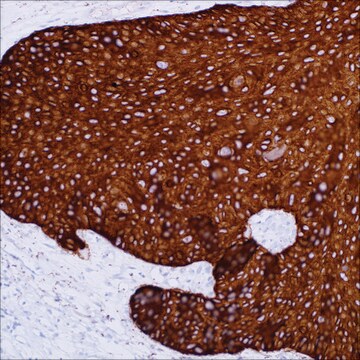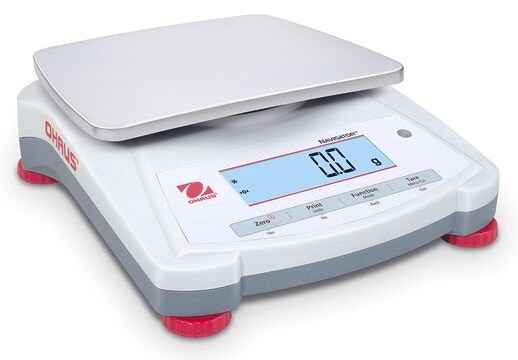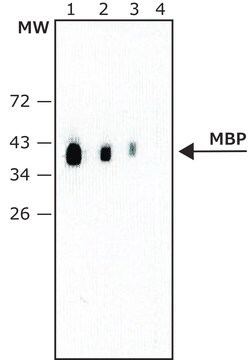CBL197
Anti-Cytokeratin 14 Antibody, clone LL002
clone LL002, Chemicon®, from mouse
About This Item
WB
western blot: suitable
Productos recomendados
origen biológico
mouse
Nivel de calidad
forma del anticuerpo
purified antibody
tipo de anticuerpo
primary antibodies
clon
LL002, monoclonal
reactividad de especies
human
envase
antibody small pack of 25 μg
fabricante / nombre comercial
Chemicon®
técnicas
immunohistochemistry: suitable (paraffin)
western blot: suitable
isotipo
IgG3
Nº de acceso NCBI
Nº de acceso UniProt
Condiciones de envío
ambient
temp. de almacenamiento
2-8°C
modificación del objetivo postraduccional
unmodified
Información sobre el gen
human ... KRT14(3861)
Aplicación
Western blotting
Optimal working dilutions must be determined by the end user.
Calidad
Forma física
Otras notas
Información legal
¿No encuentra el producto adecuado?
Pruebe nuestro Herramienta de selección de productos.
Opcional
Código de clase de almacenamiento
12 - Non Combustible Liquids
Clase de riesgo para el agua (WGK)
WGK 2
Punto de inflamabilidad (°F)
Not applicable
Punto de inflamabilidad (°C)
Not applicable
Certificados de análisis (COA)
Busque Certificados de análisis (COA) introduciendo el número de lote del producto. Los números de lote se encuentran en la etiqueta del producto después de las palabras «Lot» o «Batch»
¿Ya tiene este producto?
Encuentre la documentación para los productos que ha comprado recientemente en la Biblioteca de documentos.
Nuestro equipo de científicos tiene experiencia en todas las áreas de investigación: Ciencias de la vida, Ciencia de los materiales, Síntesis química, Cromatografía, Analítica y muchas otras.
Póngase en contacto con el Servicio técnico